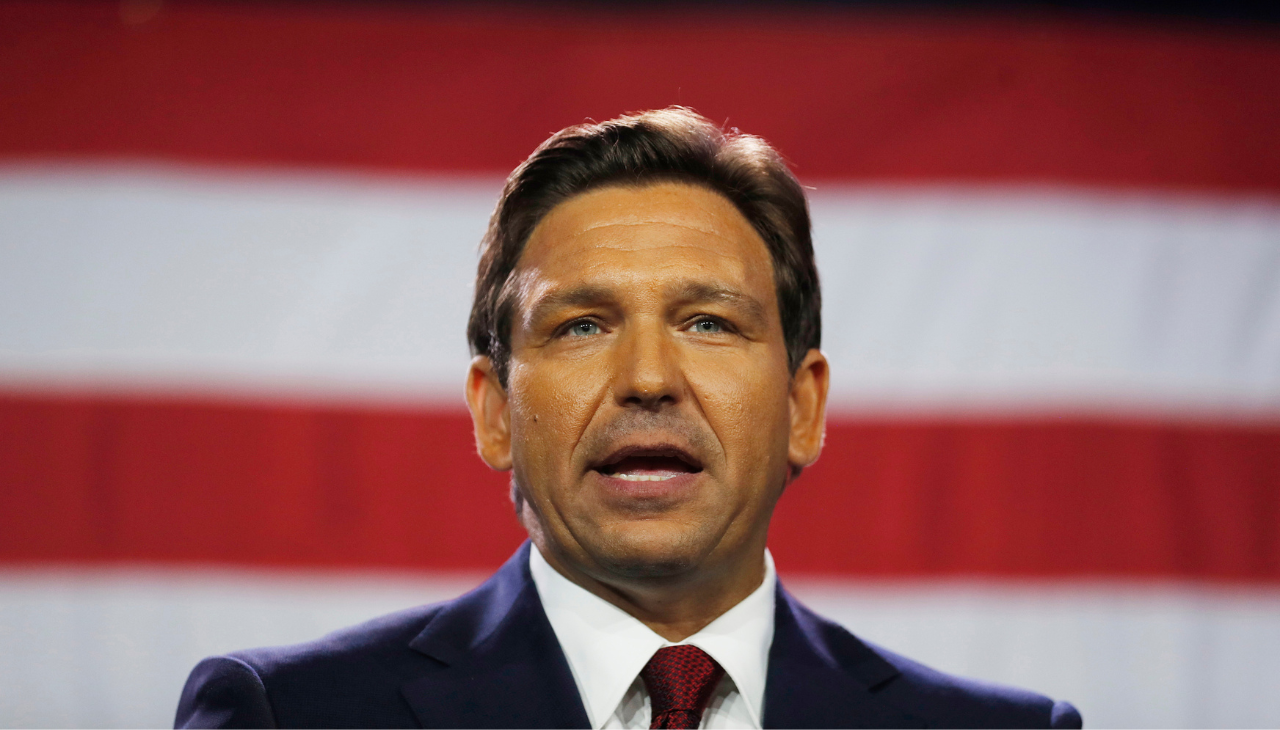
Several immigrant organizations to file legal challenge against DeSantis over Florida’s anti-immigration law
Florida Governor and 2024 Presidential hopeful Ron DeSantis is up against his first legal challenge to the state’s anti-immigration law that recently went into effect in his state on July 1.
The Southern Poverty Law Center (SPLC), American Civil Liberties Union, ACLU of Florida, Americans for Immigrant Justice, and American Immigration Council announced Tuesday, July 11 they will file a lawsuit challenging a section of SB 1718 that criminalizes the transport of undocumented immigrants into, within or out of Florida.
The lawsuit will be filed against the governor on behalf of several individuals and the Florida Farmworkers Association, an immigrant rights organization.
A spokesperson for the SPLC told Newsweek: "We don't have a specific date set for filing but it will be soon."
"Florida's anti-immigrant law perpetuates harmful stereotypes and fosters an atmosphere of fear and hostility," Kate Melloy Goettel, legal director of litigation at the American Immigration Council, said in a statement.
"Our lawsuit seeks to ensure the fundamental rights and dignity of every individual in the state—regardless of their immigration status. No one should live in fear or face discrimination based on their immigration status, their presumed immigration status or the immigration status of their family members."
Advocates say the new policy restrains immigrants’ ability to find work, drive a car, and get medical treatment.
DeSantis, who has made Florida's immigration laws one of his main missions, is looking to gain the many voters who prefer former President Donald Trump’s hard hitting immigration policies in the race for the Republican presidential nomination.
Senate Bill 1718, which took effect on July 1, makes it illegal for employers to hire immigrants as workers. It requires any business with more than 25 employees to use E-Verify, a federal system that determines if employees can legally work in the U.S., or face a loss of business license or fines of $1,000 per day per employee.
It also bars local governments from providing money to organizations that issue identification cards to immigrants not considered to be residents in the country and invalidates out-of-state driver's licenses held by people living in the country illegally.
"We're all affected by the (SB11718) law, so many of my coworkers left for other states," said Francisco Ixscoy, an immigrant from Guatemala who spoke to CBS News.
CONTENIDO RELACIONADO
"This lawsuit is going to seek an injunction, looking to stop the implementation of Section 10," said Paul Chavez, a senior supervising attorney for the Southern Poverty Law Center, one of five pro-immigrant organizations challenging SB1718 in a federal lawsuit.
The section in questions is:
",,,a person commits a third-degree felony when he or she knowingly and willfully transports into this state an individual whom the person knows or reasonably should know has entered the united states in violation of the law and has not been inspected by the federal government since his or her unlawful entry from another country."
The lawsuit will argue that part of the policy "is unconstitutional on its base, we don't need any facts, we don't need anybody to be arrested.” Anyone caught with five or more people would be charged with a second-degree felony, punishable by up to 15 years in prison.
Florida’s new policy also gives no exception for those traveling with undocumented partners or family members, or for charities or NGOs helping migrants, who would also be considered "human smugglers."
Concerns have been raised about Florida's economy and labor shortage as a result of the new bill, as the state's most important industries including agriculture and construction, rely heavily on immigrant labor.
Prior to July 1st, the large immigrant community marched on the streets and protested throughout the large Miami-Dade county.










DEJE UN COMENTARIO: